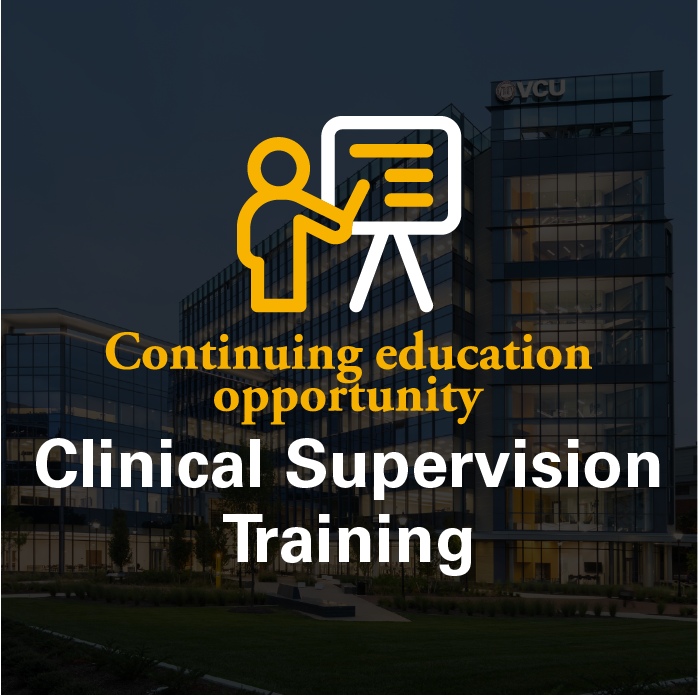Continuing Education
The VCU School of Social Work provides continuing education courses focused on clinical social work practice, clinical supervision and serious mental illness (SMI). Four new clinical-focused sessions will be available in Spring 2026, and a third SMI series will run January-April 2026.
Need more information?
If you have questions about general continuing education opportunities or those focused on mental health initiatives or clinical training, please contact Cassie DeSena-Jacobs, D.S.W., LCSW, director of mental health initiatives and assistant professor in teaching.
Spring 2026
Five continuing education sessions are on tap for clinical social work practitioners in 2026, including three focused exclusively on training for LCSWs who want to provide clinical supervision:
- Feb. 6-7 - Clinical Supervision Training, Zoom (registration closed)
- Feb. 24 - The Creative Brain: How Expressive Arts Rewire Neural Pathways for Emotional Healing, Zoom
- March 6 - Clinical Supervision Refresher, in-person
- April 17-18 - Clinical Supervision Training, in-person
- TBD - Culturally Adapting the CBITS (Cognitive Behavioral Intervention for Trauma in Schools), Zoom


Spring 2026
The VCU School of Social Work's third series on serious mental illness, Insights into Mental Illness: Practice Models, will focus on treatment modalities used with individuals who are diagnosed with SMI. The web series runs every other week on Zoom from Jan. 29-April 23.
You can view archived video of the 2025 series, Serious Mental Illness in Focus: Specialized Topics for Practitioners (seven sessions), and selected video from the 2024 series, Insights into Serious Mental Illness: A Comprehensive Seminar Series (four sessions).
.png)
.png)